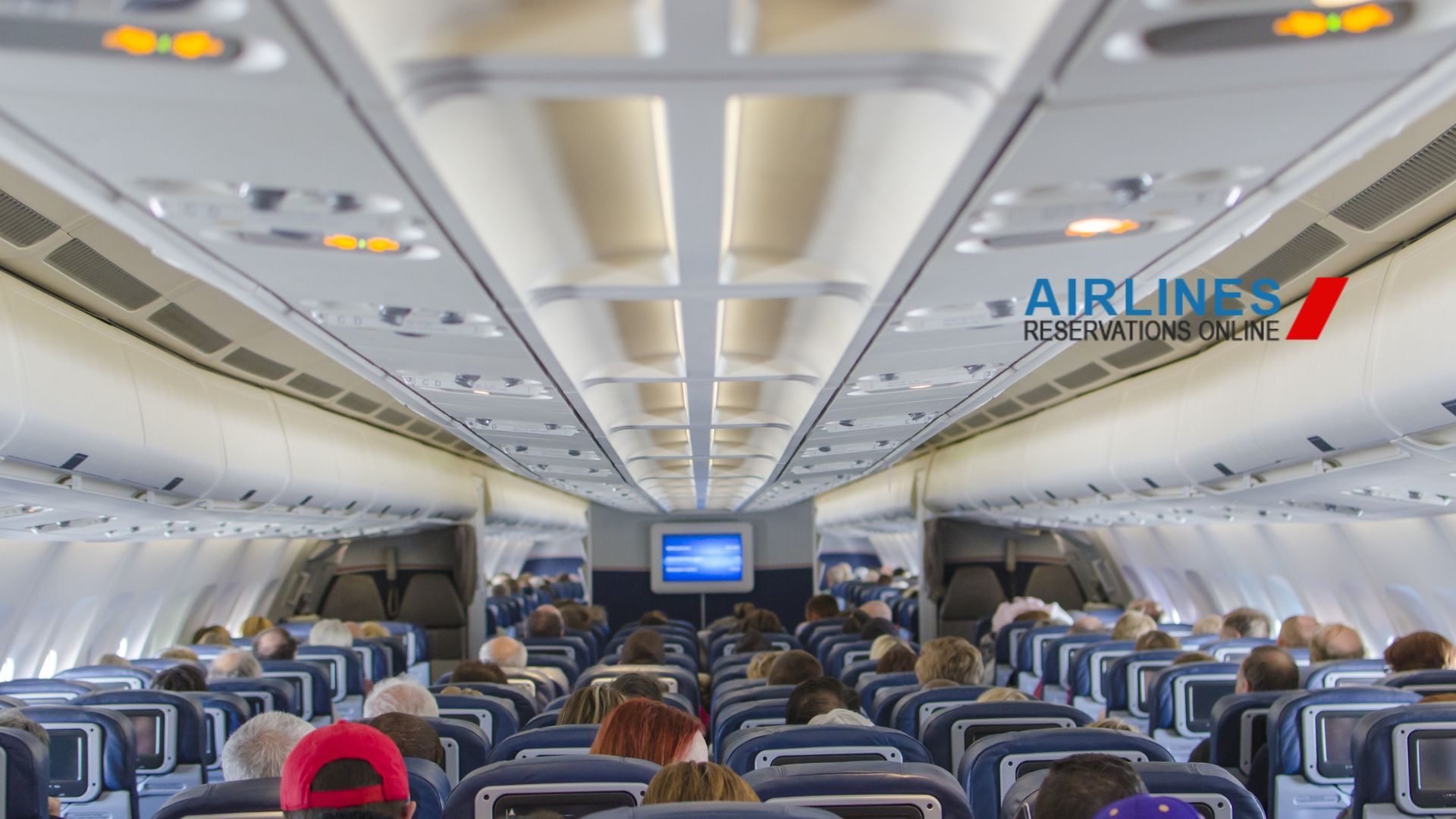A Guide to Booking the Best Flights for Senior Citizens
Traveling is a joyful experience, but for senior citizens, it can come with unique challenges that require special attention. Whether they’re flying to visit family, explore new destinations, or simply enjoy their golden years, older travelers deserve an easy, comfortable, and safe journey. This guide is here to help you master the process of booking flights for senior citizens, covering everything from finding the best discounts to handling airport navigation with ease.
Whether you’re booking online or using traditional offline flight booking methods, here are the key considerations to ensure a smooth journey for elderly passengers.
1. Search for Senior Citizen Discounts on Flight Tickets
One of the first things to consider when booking a flight for a senior citizen is whether they qualify for any special discounts. Most major airlines, both domestic and international, offer reduced fares for travelers aged 60 and above.
Tips for Finding These Deals:
- Visit airline websites and search for their “Senior Citizen Discounts” page.
- Call the airline’s customer support to ask about eligibility and discount percentages.
- Use offline booking with travel agents who can access exclusive offers or negotiated fares for seniors.
- Use flight comparison tools that allow you to filter by passenger age and special categories.
These discounts can range from 10% to 50% depending on the airline, destination, and season. While the savings might not always be visible during regular online searches, it’s worth checking directly with the airline or travel agent.
2. Prioritize Flight Timings and Duration for Comfort
Unlike younger travelers who may be more flexible, senior citizens often have stricter requirements for travel schedules. Long layovers, early morning departures, or red-eye flights can be physically taxing.
Choose the Most Comfortable Flight Options:
- Direct flights are highly recommended to avoid transit stress and reduce overall travel time.
- If a layover is unavoidable, make sure it provides enough time for rest and transfers.
- Midday or early afternoon departures are ideal to avoid rush hours and ensure the senior traveler is well-rested before the flight.
- Avoid tight connections that might cause stress if there’s a delay.
Choosing the right flight schedule is one of the most crucial factors in ensuring a hassle-free journey.
3. Seating Matters – Choose Seats That Offer Comfort and Accessibility
For senior citizens, especially those with reduced mobility, seat selection can make a significant difference. Many airlines offer options for extra legroom, aisle seats, or seats closer to the front of the aircraft.
Here’s what to look for:
- Extra legroom: Great for seniors with arthritis or circulation issues.
- Aisle seats: Easier access to restrooms and mobility during the flight.
- Bulkhead seats: Often have more space and fewer disturbances.
- Wheelchair accessibility: If your senior traveler uses a wheelchair, request specific seating and boarding arrangements.
When booking flights online, use the seat map feature if available. For offline bookings, discuss your senior’s needs with the travel agent to get the best possible placement.
4. Find the Best Value Flights – Not Just the Cheapest
While it’s tempting to book the cheapest airfare, the lowest price may not always provide the best travel experience for seniors. Cheaper flights may come with downsides like long layovers, no meal service, or cramped seating.
Strike the Right Balance:
- Compare flights based on amenities, timing, and layovers—not just cost.
- Consider premium economy if budget allows—it offers more legroom and a quieter cabin.
- Booking through a travel agent (offline method) can help uncover hidden deals with better service inclusions.
Think about value in terms of comfort, convenience, and peace of mind rather than just savings.
5. Know the Airline’s Baggage Policy
Seniors typically prefer to travel light, but it’s essential to check the baggage policies in advance to avoid confusion or extra charges at the airport.
Key Points to Consider:
- Carry-on restrictions: Check weight and size limits.
- Checked baggage: Some airlines include it free for seniors; others charge.
- Assistance with luggage: Ask if the airline provides support at check-in and baggage claim.
- Medical equipment: Ensure that wheelchairs, oxygen tanks, or walking aids are allowed onboard without extra cost.
For offline bookings, ask the agent to walk you through the baggage policies of each airline.
6. Avoid Itineraries with Stressful Connections or Layovers
Senior travelers often require more time to transfer between gates, go through security, or simply rest between flights. Avoid tight or multiple connections whenever possible.
Ideal Itinerary Setup:
- Direct flights: Always the best option when available.
- Longer layovers over rushed ones: At least 1.5 to 2 hours if a transfer is necessary.
- Avoid overnight layovers unless there’s accommodation provided.
If you’re handling the booking offline, tell your agent about the traveler’s physical limitations and request the most straightforward travel route.
7. Consider Health Needs and Request Special Assistance
Senior citizens may require extra medical support or mobility assistance while traveling. It’s crucial to declare all health-related requirements at the time of booking.
Services to Inquire About:
- Wheelchair assistance: Available from check-in to boarding and arrival.
- Medical clearance: Required for travelers with chronic illness or devices like pacemakers.
- Oxygen support: Some airlines provide in-flight oxygen, but it must be arranged in advance.
- Priority boarding: Make sure it’s included for seniors who need extra time.
For elderly passengers with conditions like diabetes, high blood pressure, or dementia, bring all medical documents and ensure medication is packed in the carry-on bag.
8. Consider Insurance for Travel Safety
Travel insurance is especially important for older travelers. The right insurance can provide coverage for medical emergencies, trip cancellations, lost luggage, and more.
Recommended Coverage Options:
- Emergency medical care (especially abroad)
- Coverage for prescription medications or hospital stays
- Trip delays or cancellations
- Assistance for lost luggage or personal belongings
Many insurers offer senior-specific travel insurance plans that include benefits not typically found in standard packages. Make this part of your flight booking checklist.
9. Prepare Documents and ID Well in Advance
Depending on the destination and airline, senior citizens may need specific documentation beyond a regular ID or passport.
Must-Have Documents:
- Valid photo ID (passport, government-issued ID, senior citizen card)
- Medical certificates (if required)
- Doctor’s letter for medication
- COVID-19 vaccination certificate (if required)
For international flights, make sure the passport has at least 6 months of validity. Also, double-check visa requirements depending on the destination.
10. Book Early for the Best Seats and Prices
Early bookings come with several advantages, especially for seniors who need more flexibility. Airlines open bookings 6–11 months in advance, and the earlier you book, the more options you’ll have.
Advantages of Booking Early:
- Access to preferred seating
- Lower airfare
- Better flight times and shorter layovers
- More availability of senior services
If you’re using offline booking, let the travel agent know you’re looking for early-bird deals with senior-friendly services.
11. Give Extra Time for Airport Activities
Airports can be confusing and physically demanding, especially for seniors. From check-in to security checks and gate changes, everything can take longer.
Tips for Airport Readiness:
- Arrive 2.5 to 3 hours early for international flights.
- Use wheelchair assistance if needed to move through terminals.
- Carry a printed itinerary and boarding pass as backup.
- Avoid short layovers to allow time for breaks or slow navigation.
Also, airports often have dedicated senior assistance counters, especially for immigration or security clearance. Look out for these or ask staff for help.
12. Pack Essentials in Carry-On Luggage
When flying with senior citizens, make sure their carry-on bag includes all the essentials they may need during the flight.
Suggested Items:
- Prescribed medication and a copy of the prescription
- Snacks (especially for diabetics)
- Bottled water (after security)
- Sweater or shawl
- Travel documents and ID
- Contact list of family members
- A light book or entertainment
Also consider compression socks, especially for longer flights, to improve blood circulation.
13. Use Offline Booking for Personalized Travel Assistance
While online flight booking is convenient, sometimes it’s better to book flights offline, especially for seniors. Travel agents can provide one-on-one support, discuss health concerns, and customize the itinerary in ways an online booking engine cannot.
Why Consider Offline Booking?
- Direct communication with experts
- Personalized travel planning
- Access to special deals not listed online
- Easier to request accessibility services
Offline bookings also make it easier to get support when something goes wrong—like a flight delay or change.
Conclusion
Booking the right flight for a senior citizen involves much more than comparing prices. It’s about considering their health, comfort, mobility, and overall travel experience. Whether you’re planning a short domestic trip or a long-haul international flight, the details matter.



